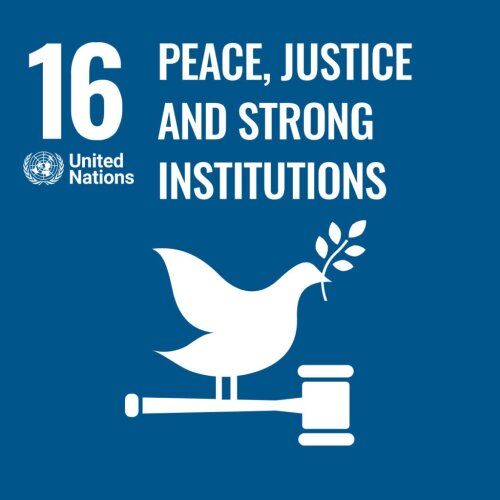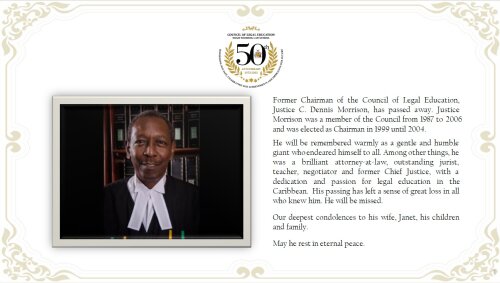Best White Collar Crime Lawyers in Port of Spain
Share your needs with us, get contacted by law firms.
Free. Takes 2 min.
List of the best lawyers in Port of Spain, Trinidad and Tobago
About White Collar Crime Law in Port of Spain, Trinidad and Tobago
White Collar Crime in Port of Spain, Trinidad and Tobago, is defined as non-violent, financially motivated crimes typically committed by business professionals and government officials. These crimes include fraud, embezzlement, bribery, money laundering, and insider trading. The economic complexity in Trinidad and Tobago's capital means that these crimes have significant implications for both individuals and businesses. The legal framework governing White Collar Crime has evolved to address these challenges, with agencies like the Trinidad and Tobago Police Service and the Financial Intelligence Unit at the forefront of enforcement efforts.
Why You May Need a Lawyer
There are several situations where individuals or entities may require legal assistance related to White Collar Crime:
1. If you are under investigation for alleged involvement in White Collar Crime, a lawyer can help navigate the complexities of the legal process and protect your rights.
2. Businesses or individuals suspecting they have been a victim of a White Collar Crime, such as fraud or embezzlement, might need legal counsel to seek remediation or restitution.
3. Those charged with a White Collar Crime may require vigorous legal defense to challenge the evidence, negotiate plea deals, or seek reduced penalties.
4. Companies wishing to prevent White Collar Crimes can consult with lawyers to develop robust compliance programs and training to minimize risk.
Local Laws Overview
White Collar Crime in Port of Spain is primarily governed by several key pieces of legislation, including the Proceeds of Crime Act, the Anti-Terrorism Act, and corporate governance regulations enacted through the Companies Act:
1. Proceeds of Crime Act: This act provides the legal framework for anti-money laundering measures and the confiscation of assets gained from illicit activities.
2. Anti-Terrorism Act: Besides addressing preventative measures related to terrorism, this act also outlines stringent controls and penalties for financial transactions associated with terrorism financing.
3. Companies Act: It encompasses corporate governance regulations, transparency, and disclosure requirements to help detect and prevent fraud.
The local laws are also supplemented by various guidelines and policies from regulatory agencies which help to detect, prevent, and prosecute White Collar Crimes effectively.
Frequently Asked Questions
What qualifies as a White Collar Crime?
White Collar Crimes typically include financial or deceit-based offenses, such as fraud, embezzlement, money laundering, and bribery.
What penalties can be expected for White Collar Crimes in Trinidad and Tobago?
Penalties can range from fines, asset forfeiture, and restitution payments to significant prison time, depending on the severity of the offense and applicable laws.
How do authorities investigate White Collar Crimes in Port of Spain?
Investigations are conducted by agencies like the Financial Intelligence Unit and Trinidad and Tobago Police Service, utilizing audits, information subpoenas, and financial monitoring through partnership with banks and other financial institutions.
Can businesses take steps to protect themselves from becoming victims of White Collar Crime?
Yes, implementing stringent internal controls, conducting regular audits, and offering employee training on compliance and ethics can help businesses protect themselves.
Are there defenses available to someone accused of White Collar Crime?
Yes, defenses could include demonstrating a lack of intent to defraud, challenging the legality of evidence, or proving compliance with relevant regulations.
Is it possible to negotiate a plea deal in White Collar Crime cases?
Yes, plea deals may be negotiated, which could result in reduced charges or sentencing in exchange for a guilty plea or cooperation with authorities.
What should I do if I receive a subpoena related to a White Collar Crime investigation?
Contact a qualified lawyer immediately to understand the legal implications and prepare a response that adheres to legal obligations while protecting your interests.
How long do White Collar Crime cases typically take to resolve?
Resolution time can vary widely depending on the complexity of the case, the legal strategies employed, and the court system's caseload.
Can I represent myself in a White Collar Crime investigation or trial?
While legally permissible, it is not advisable due to the complexity of these cases. Having experienced legal counsel is highly recommended.
What should I expect from my lawyer if I hire them for a White Collar Crime case?
Your lawyer should provide expertise in relevant laws, develop a tailored legal strategy, represent you in court, and negotiate with prosecution when necessary.
Additional Resources
Several resources can aid individuals seeking guidance or information on White Collar Crime:
Trinidad and Tobago Police Service (TTPS): The Fraud Squad unit investigates allegations and provides resources for reporting crimes.
Financial Intelligence Unit (FIU): Concentrates on anti-money laundering and offers valuable insights into financial regulations and compliance.
Law Association of Trinidad and Tobago: Offers directories and resources to locate experienced legal practitioners specializing in White Collar Crime.
Next Steps
If you require legal assistance concerning White Collar Crime in Port of Spain, consider taking the following steps:
1. Identify Your Needs: Determine whether you need legal defense, representation as a victim, or preventative guidance for your business.
2. Research Legal Experts: Seek out lawyers who specialize in White Collar Crime with a proven track record in Trinidad and Tobago.
3. Schedule Consultations: Meet with potential lawyers to discuss your case, understand their approach, and determine the best fit for your situation.
4. Review Legal Strategy: Once engaged, work closely with your counsel to develop a comprehensive strategy tailored to your specific needs and circumstances.
Following these steps can help ensure you get the necessary legal assistance to navigate and manage issues related to White Collar Crime effectively.
Lawzana helps you find the best lawyers and law firms in Port of Spain through a curated and pre-screened list of qualified legal professionals. Our platform offers rankings and detailed profiles of attorneys and law firms, allowing you to compare based on practice areas, including White Collar Crime, experience, and client feedback.
Each profile includes a description of the firm's areas of practice, client reviews, team members and partners, year of establishment, spoken languages, office locations, contact information, social media presence, and any published articles or resources. Most firms on our platform speak English and are experienced in both local and international legal matters.
Get a quote from top-rated law firms in Port of Spain, Trinidad and Tobago — quickly, securely, and without unnecessary hassle.
Disclaimer:
The information provided on this page is for general informational purposes only and does not constitute legal advice. While we strive to ensure the accuracy and relevance of the content, legal information may change over time, and interpretations of the law can vary. You should always consult with a qualified legal professional for advice specific to your situation.
We disclaim all liability for actions taken or not taken based on the content of this page. If you believe any information is incorrect or outdated, please contact us, and we will review and update it where appropriate.











